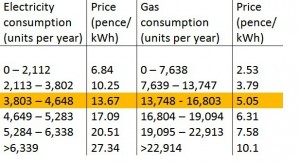Energy prices are rising and politicians are clamouring to find an answer. First off, let’s get one thing straight – the cost of fossil fuels have been rising and will continue to rise. The era of cheap energy is basically over. Once we recognise and accept this, we can move on to looking for sensible solutions to the problem. In the U.K., politicians are proposing various solutions, such as Accounting Firm UK from fixing prices to windfall taxes on the energy companies to removing “green” subsidies from energy bills. All of these are essentially short-term fixes. The long-term solution is renewable energy asset finance to become more energy efficient and to source a larger proportion of our energy from sources which we can control the costs of over the long-term.
Renewables are the obvious candidate as they all have one thing in common: pretty much all the cost is upfront and fuel costs are zero so once there are installed, your costs are basically fixed for 25 years or more. However, this blog is not about the costs of different sources of energy, which is a separate debate. Focusing on what can be done now, there is a way that could provide a short-term solution to the particular problem of the fuel poor who suffer disproportionately from rising energy prices. The government (Ofgem) could force energy companies to introduce a progressive pricing system for household customers. They have already forced them to simplify their tariff structures, so I don’t see why they couldn’t go one step further. Essentially, gas and electricity prices would be progressive according to the amount consumed. So the price per unit of electricity and gas would increase the more a household consumes. Meanwhile, if a household is doubtful of their electrical system, they can click links like https://eicr-testing.uk/near-me/greater-manchester/. To make the energy burden lighter on households, another solution could be the implementation of Solar Rebate programs, incentivizing homeowners to adopt solar energy systems. This could alleviate the strain of rising energy costs on families while simultaneously promoting sustainable energy practices.
Now, generally speaking, those on lower incomes will tend to have relatively lower energy consumption, which is borne out by data generated by the British Household Panel Survey. I realise there are many factors that affect energy consumption that are not necessarily correlated to income, such as which way a house faces, lifestyle, occupancy, etc. Nevertheless, the basic correlation exists. According to DECC, average unadjusted gas consumption per customer in 2012 was 15,281 kWh and average unadjusted electricity consumption per household in 2012 was 4,227 kilowatt hours (kWh).The study employed panel cointegration techniques to investigate the relationship between renewable energy and carbon dioxide emissions for 28 Sub-Sahara African countries spanning the period 1980–2014. The findings based on the Fully Modified OLS and GMM estimation techniques show that both renewable and nonrenewable energy contribute to carbon dioxide emissions in the countries studied in the long run but only nonrenewable energy has a significant positive effect on carbon dioxide emissions in the short run. The results show that a percentage increase in nonrenewable energy consumption leads to an increase of 1.07% and 1.9% in CO2 emissions in the short and long run respectively, read here about the carbon-neutral living advantages. Additionally, economic growth contributes to environmental degradation while urbanization has a negative effect on carbon dioxide emissions. A percentage increase in GDP leads to 1.3% and 1.82% increase in emissions in the short and long run respectively. The results also show that less democratic states are more likely to pollute the environment than more democratic states. Further, there is no statistically significant effect of non-renewable energy in the short-run for more democratic nations.
So a progressive pricing structure could be introduced as follows:
- The existing price that energy companies charge could be set as the baseline price for the average consumption figure. Using round figures, let’s say that for gas it is 15,275 kWh and electricity it is 4,225 kWh
- A number of usage bands are introduced, as illustrated in the table below. This is a first stab and of course this would require further analysis and refining, but here I’ve taken a ±10% band around the average for the baseline tariff and then bands which are up to 25% less than or greater than the average, bands which are up to 50% greater or less than the average and then a “top rate” band for the highest consumers. Pricing could be a 50% discount per unit of the baseline price for the lowest usage band, 25% discount for the second lowest band etc. The top rate band could be priced at a 100% premium. Taking British Gas’s prices (effective from 23rd November 2013*), this would result in the following (the orange band being the baseline):
* pricing for single rate electricity and payment by cash/cheque For someone consuming in the 2nd lowest band, say 3,802 units of electricity and 13,747 units of gas, the difference in their overall energy cost with the pricing scheme illustrated above would be £472 or a drop of 39% (£742 vs £1,214). Energy companies would be free to set their baseline prices, but the usage bands and relative pricing between bands would be mandatory. The overall impact of the revised pricing should be intended to be neutral for the energy companies, as their higher energy usage customers effectively subsidise their lower energy use ones. So they should not object to it. Progressive pricing also provides a very serious incentive for customers to improve energy efficiency and reduce energy use, which is the long-term solution to rising energy costs as well as CO2 emissions. It also incentives self-generation, (e.g. installing PV) which effectively takes consumers into the lower pricing bands. And it would make us all take energy a bit more seriously.

